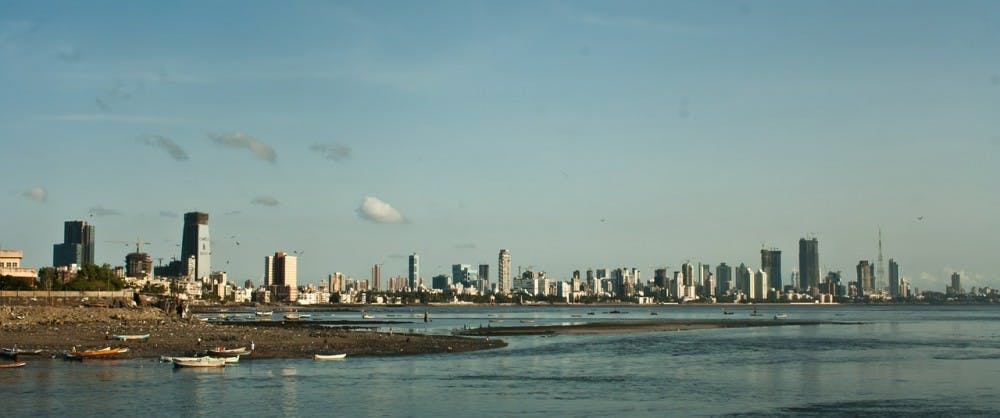
Some of you may remember me or my column from the past three years of The News-Letter. You’re probably asking why I’m still here on campus now that I graduated.
The short answer is of course that I couldn’t let go of Hopkins and all of its multitudes of wondrousness. The long answer is that I’m doing a year-long master’s in Computer Science.
Most of my life has stayed exactly the same as it has been the past four years. I’m still taking classes at Homewood. I’m interacting with the same professors. I see the same familiar faces everywhere. I’m still living in Nine East. I’m still writing for The News-Letter.
But at the same time, it’s completely different. The people I’d been living within five minutes of for four years are scattered across the country. I get more academic freedom because I’m a grad student. I’m no longer a News-Letter editor. And, most importantly, I cook all of my meals now (who would’ve thought that was possible?).
So that’s where the name of this column comes from. The Upside Down — a world that seems the same but is inherently different. Through it I hope I can shed some light on what life is like after you receive that oversized, big, shiny diploma.
Today though, I want to keep up a three-year-old tradition of mine. I start my column every year by talking about my experiences as an immigrant.
For those of you who don’t know me, I grew up in India and moved here for Hopkins when I was 17. I have a green card, though, which means that I can live and work in this country. So I don’t intend to move back to India, and I’m planning on applying to be a citizen in April.
According to meme groups and most of my friends, after four years here, I have turned into what’s called a coconut — brown on the outside but white on the inside. Judging by the simple fact that I have tailgated in an Iowa parking lot outside a baseball stadium, people consider me “basically American.”
And I can’t say I disagree. I feel more at home here today than I did when I traveled to India over the summer a month ago. I get sick when I travel to Mumbai, but not when I come back to Baltimore. Slowly I’ve started feeling like a tourist in the place I grew up.
During Graduate Student Orientation last week, I ended up sitting next to several international students from India. We were doing the usual introductions, and they asked me where I was from.
“I’m originally from Mumbai, but I’ve been here for the past four years.”
Only four years ago, it was just, “I’m from Mumbai.” Four years ago, they wouldn’t have had the same look of surprise on their faces as they did when I told them I was from the same place they were.
I know my accent has changed; I know my mannerisms have changed; I know that even my personality has changed in those four years.
And now I feel the need to clarify — I feel the need to add a “but” to explain why I act and sound the way I do.
When they talked to each other about the arduous process of trying to get a U.S. work visa post graduation, I couldn’t relate.
Don’t get me wrong — I’m unbelievably grateful that my parents went through the process even before I was born and waited for over 20 years to get a green card just so that if I wanted to move here I’d have the chance to.
Still, it’s a strange feeling — staying out of that conversation just because I can’t relate to people who spent their entire lives in a place where I spent the overwhelming majority of mine.
Finally, I feel like I’ve completely assimilated to life here. If/when I do become a citizen (fingers crossed), I know that I’ll feel like I belong.
And it’s not necessarily a bad thing. If I’m going to spend the rest of my life here, why wouldn’t that be anything but good for me?
I guess it’s just that part of me will always feel like I’ve lost something, like I’ve lost a very significant part of myself. So all I can really do is hold on to the little things — like the sense of familiarity I feel when the heat descends on me as soon as I land in Mumbai; the feeling of eating a meal in Mumbai that I haven’t experienced anywhere else; the ability to seamlessly weave through any crowd, no matter how big; and so much more.
More importantly, I’m starting to embrace the new traditions and experiences that I have here that make me feel connected to who I was growing up. Things like learning how to cook Indian food while FaceTiming my mom; dumping hot sauce and spices all over every meal I eat; and a lot more that I haven’t even discovered yet.
For so long I held on to the idea of being Indian in India, and the more time I spent here, the more I felt like it was slipping away. And of course it was. I wasn’t in India anymore. And it took me four years to realize that it’s okay to redefine what it means for me personally to be Indian.
Maybe that makes me a coconut. Maybe it doesn’t. What matters, though, isn’t that I fit into someone else’s definition of what it means to be truly Indian; it’s that I fit into my own. And I know now that that definition can and will keep changing, and that’s okay.





